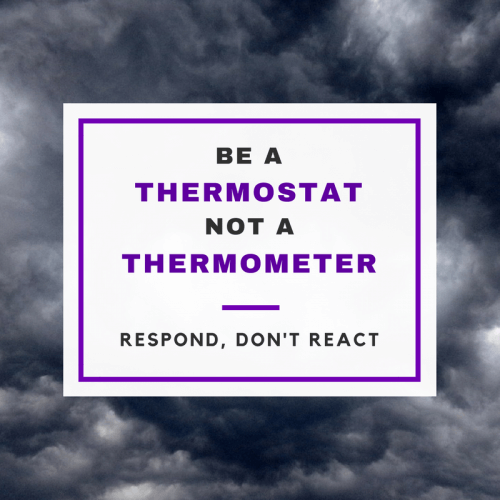Thermometers react to their surroundings. A Thermostat reads and regulates its environment. A Thermostat embodies equanimity.

Later today my guest on WhatComesNextLive is Scott Perry of Creative on Purpose.
As I am fond of saying, “people are my library” and I love to both read and listen to the thoughts of others. I look forward to being in conversation with Scott today, and, prior to that, am curating here a recent newsletter he sent out.
Before I share that, though, I searched my own archive of over 1300 posts for the word ‘thermostat” and came up with: “Be a thermostat, not a thermometer” from March 2020 and inspired by a video blog from Chip Conley. Connecting dots, Scott and I met around that time as we are both alumni of Chip’s creation, the Modern Elder Academy.
Be the Thermostat
Equanimity is one of my favourite words.
First of all, it’s fun to say. Seriously. Say it aloud several times. It’s a word that ping-pongs around your mouth like a pinball. It starts with hitting the back of your mouth, careens to the roof, and bounces off your closed lips back to the top before you spit out the final syllable. Try it. See? Wasn’t that fun?!
Equanimity shouldn’t be conflated with the modern usage of apathy. However, in Stoic philosophy, apatheia (from the Greek: a- “without” and pathos “suffering”), apathy refers to a state of mind that is not disturbed by harmful desires or passions. In ancient usage, apathy was equanimity.
Equanimity is my preferred way of being. It doesn’t invite the dull laziness of tranquillity, nor does it burn out quickly like the ardour of happiness. It just hums with even, calm energy that’s sustainable and pleasant. Equanimity is a virtue that encourages strength and volition. Equanimity is one of a difference-maker’s most powerful tools.
To practice equanimity is to not be dragged about by your passions or attachments. Detachment from unhealthy narratives about your past or desires about the future allows you to be present in the here and now and do the work you need to do with integrity and intention.
At the same time, equanimity doesn’t preclude enjoying and even celebrating life’s small accomplishments and achievements. By all means, revel a moment in your victories, big and small; just don’t let Fate’s fickle finger pointing in your favour for a moment go to your head.
While equanimity is easy to articulate, it is hard to practice. Most virtues are easier to talk than walk.
As I move through my day, I remind myself, “Be the thermostat, not the thermometer.” Thermometers react to their surroundings. Thermostats read and regulate their environment. Thermostats embody equanimity.
How might you be a bit less like a thermometer and a bit more like a thermostat today?
by Scott Perry
